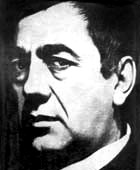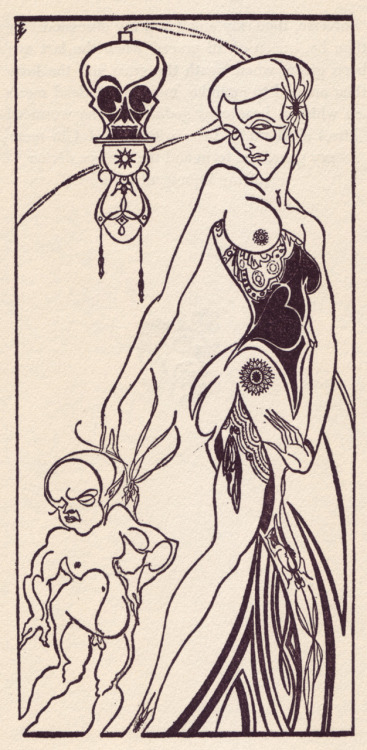ഒച്ചുകളിഴയുന്ന കൊഴുത്തുമിനുത്ത ചെളിമണ്ണിൽ
ആഴത്തിലൊരു കുഴിയെടുക്കാനെനിയ്ക്കു മോഹം,
അതിൽ ഈ കിഴവന്റെ അസ്ഥികളെ കിടത്താൻ,
കടലിലൊരു സ്രാവിനെപ്പോലെ മതികെട്ടുറങ്ങാൻ.
ഓർമ്മക്കല്ലുകളും വിൽപ്പത്രങ്ങളുമെനിയ്ക്കു വേണ്ട,
ഒരു മനുഷ്യനുമെനിക്കായി കണ്ണീരു ചൊരിയേണ്ടാ,
ഈ കിഴട്ടുജഡത്തിന്റെ കുടൽമാല കൊത്തിവലിയ്ക്കാൻ
ജീവനുള്ളപ്പോൾത്തന്നെ കാക്കകളെ ഞാൻ ക്ഷണിച്ചേക്കാം.
പുഴുക്കളേ! കണ്ണും കാതുമില്ലാത്ത കറുത്ത ചങ്ങാതിമാരേ,
ഒരു സന്തുഷ്ടജഡമിതാ വരുന്നു, നിങ്ങൾക്കു സ്വാദു നോക്കാൻ;
ദാർശനികാത്മാക്കളേ, ജീർണ്ണതയുടെ സന്തതികളേ,
ഒരു കുറ്റബോധവും തോന്നാതെന്നിൽക്കയറി നിരങ്ങിക്കോളൂ!
ആത്മാവു പൊയ്പ്പോയ ഈ വൃദ്ധദേഹത്തിനു സഹിക്കാൻ
ഒരു പീഡയെങ്കിലും ശേഷിക്കുന്നെങ്കിലതൊന്നു പറഞ്ഞേക്കൂ!
(പാപത്തിന്റെ പൂക്കൾ-75)
Le Mort joyeux
Dans une terre grasse et pleine d'escargots
Je veux creuser moi-même une fosse profonde,
Où je puisse à loisir étaler mes vieux os
Et dormir dans l'oubli comme un requin dans l'onde.
Je hais les testaments et je hais les tombeaux;
Plutôt que d'implorer une larme du monde,
Vivant, j'aimerais mieux inviter les corbeaux
À saigner tous les bouts de ma carcasse immonde.
Ô vers! noirs compagnons sans oreille et sans yeux,
Voyez venir à vous un mort libre et joyeux;
Philosophes viveurs, fils de la pourriture,
À travers ma ruine allez donc sans remords,
Et dites-moi s'il est encor quelque torture
Pour ce vieux corps sans âme et mort parmi les morts!
— Charles Baudelaire
The Joyful Corpse
In a rich, heavy soil, infested with snails,
I wish to dig my own grave, wide and deep,
Where I can at leisure stretch out my old bones
And sleep in oblivion like a shark in the wave.
I have a hatred for testaments and for tombs;
Rather than implore a tear of the world,
I'd sooner, while alive, invite the crows
To drain the blood from my filthy carcass.
O worms! black companions with neither eyes nor ears,
See a dead man, joyous and free, approaching you;
Wanton philosophers, children of putrescence,
Go through my ruin then, without remorse,
And tell me if there still remains any torture
For this old soulless body, dead among the dead!
— William Aggeler, The Flowers of Evil (Fresno, CA: Academy Library Guild, 1954)
The Happy Dead Man
Slowly, luxuriously, I will hollow a deep grave,
With my own hands, in rich black snail-frequented soil,
And lay me down, forspent with that voluptuous toil,
And go to sleep, as happy as a shark in the wave.
No funeral for me, no sepulcher, no hymns;
Rather than beg for pity when alive, God knows,
I have lain sick and shelterless, and let the crows
Stab to their hearts' content at my lean festering limbs.
O worms! my small black comrades without ears or eyes,
Taste now for once a mortal who lies down in bliss.
O blithe materialists! O vermin of my last bed!
Come, march remorselessly through me. Come, and devise
Some curious new torment, if you can, for this
Old body without soul and deader than the dead.
— George Dillon, Flowers of Evil (NY: Harper and Brothers, 1936)
Joyful Corpse
In a rich fertile loam where snails recess,
I wish to dig my own deep roomy grave,
There to stretch out my old bones, motionless,
Snug in death's sleep as sharks are in the wave.
Men's testaments and tombs spell queasiness,
The world's laments are not a boon I crave,
Sooner, while yet I live, let the crows press
My carrion blood from out my skull and nave.
O worms, black comrades without eyes or ears,
Behold, a dead man, glad and free, appears!
Lecher philosophers, spawn of decay,
Rummage remorseless through my crumbling head
To tell what torture may remain today
For this my soulless body which is dead.
— Jacques LeClercq, Flowers of Evil (Mt Vernon, NY: Peter Pauper Press, 1958)



































